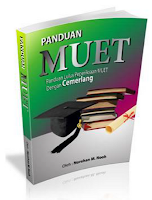 The poor command of English is hampering the ability of our university graduates to find jobs.<
The poor command of English is hampering the ability of our university graduates to find jobs.<
With the July 28 Cabinet reshuffle, it is hoped that higher education in Malaysia will move in the right direction and see an improvement in the standards of our public universities.
The first matter that should be tackled is the poor command of the English language among our undergraduates.
Despite having the largest allocation of RM38.7 billion in Budget 2013 and RM54 billion in Budget 2014, the quality of higher education in the country is not encouraging.
A 2013 JobStreet.com survey reveals that the bulk of Malaysian graduates who failed to secure employment suffered as a result of their inability to communicate in English.
This was backed up by a Wall Street Journal (WSJ) report which highlighted poor English language skills among Malaysian graduates.
Quoting a Malaysian Employers Federation (MEF) survey of senior managers that was conducted in 2011, it says 60% of companies had rejected applicants from local universities due to their poor command of English.
The WSJ also cites results of the Malaysian University English Test (MUET) for March and July 2014, where only two out of some 100,000 candidates were placed in band 6 or "very good".
Another 10,000 candidates were placed in band 5 (good) or band 4 (competent), while the remaining 90,000 candidates were placed in bands ranging from 1 to 3, representing modest, limited and extremely limited.
Despite this alarming situation, the Education Ministry, which was then under former deputy prime minister and education minister Tan Sri Muhyiddin Yassin, rejected any plan to return the medium of instruction in national schools to English from Bahasa Malaysia.
He justified his rejection on grounds that such a move would require amending the Education Act 1996.
However, many believe his rejection was due to the fact that even secondary school students had a poor command of English, and any move to change the medium of instruction would further compound the problem.
Others went further to say that even school teachers could hardly express themselves in English, and would not be able to teach in the language.
In the meantime, the slide continued with local universities failing to gain entry into the Times Higher Education World University Rankings list for five consecutive years.
This indicates their inability to compete with even those universities in Southeast Asia, let alone top learning institutions in the rest of the world.
The fact that Malaysia had never been featured on the list will, in the long term, hamper Putrajaya's goal to make the nation a regional education hub and attract some 200,000 students to local universities by 2020.
However, not everyone believed the negative reports on the state of our tertiary institutions. For instance, Muhyiddin responded with claims that Malaysia offered one of the best education systems in the world – better than the United States, Britain and Germany.
The Education Ministry further claimed that our command of the English language was better than neighbouring Singapore's, and that we ranked number one in Asia.

The ministry also came out with its much heralded blueprint (pix) in 2013 that would, it claimed, propel the education sector upwards and forwards to 2025.
But it has yet to make a difference.
Malaysia failed to be listed in the Times Higher Education Asia University Rankings 2015. The National University of Singapore, however, is listed as No. 2 in Asia, next only to the University of Tokyo.
Former prime minister Tun Dr Mahathir Mohamad proposed a return to the teaching of science and mathematics in English, which he pioneered during his tenure.
Mahathir had warned that Malaysia would be a nation of non-creators should its people fail to master science and mathematics – subjects that required a strong command of English.
Even the Sultan of Johor, Sultan Ibrahim Sultan Iskandar, weighed in on the issue and called for English to be brought back as the medium of instruction in schools, citing Singapore as an example.
"Singapore's system has proven to be successful… (it has) helped to unite the races (there). What we can emulate from Singapore is the unity which has been fostered by its single-stream education system which uses English as the medium of instruction," Sultan Ibrahim had reportedly said.
The Sultan's call may have gained support from educationists, education groups and individuals, but the Education Ministry remained steadfast in its belief that its ad-hoc measures were best.
Now, with the return of the Higher Education Ministry with the latest Cabinet reshuffle, and with a new Education Minister (Datuk Seri Mahdzir Khalid) at the helm, it is hoped that the pressing issues of poor English language command in schools and deteriorating tertiary education standards will be addressed.
Failing this, Malaysia will firm up its position as a third world country competing with the likes of Myanmar, North Korea and Bangladesh. —- Jeswan Kaur
Like this:
Like Loading...
Related














 The poor command of English is hampering the ability of our university graduates to find jobs.<
The poor command of English is hampering the ability of our university graduates to find jobs.<



